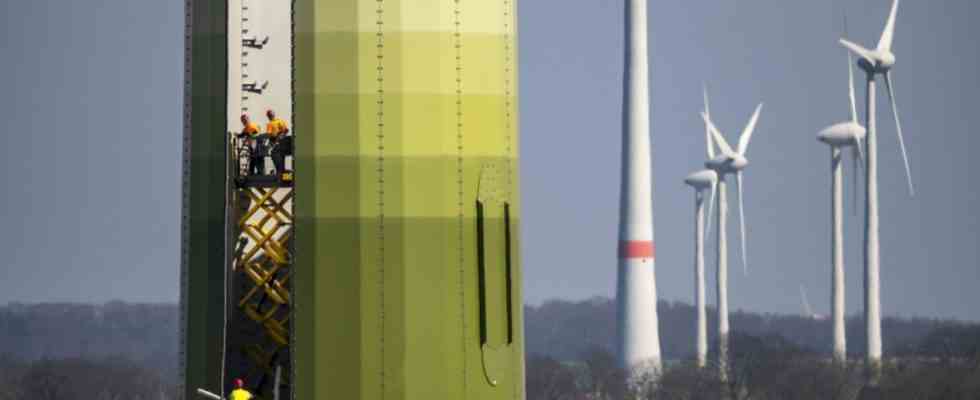Anyone who produces clean technologies in Europe, such as wind turbines or batteries for electric cars, can look forward to extensive state aid. In the subsidy race with the USA and China, the EU Commission relaxed its subsidy rules on Thursday, according to which European governments can support important industrial sectors for the green transformation with state money. This is intended to prevent corporations from relocating and settling new ones where governments are luring them with even more lavish grants.
To do this, the Commission changes for the third time the “Temporary Crisis Framework” they in March set up a year ago in response to the looming energy crisis. First in summer and later end of October In 2022, the Brussels authority adjusted these rules to give member states more leeway to support their economy. This was particularly relevant for companies that got into trouble because of the high energy prices.
Now the crisis framework is becoming even more of a geostrategic instrument. In the future, Member States are likely to spend large sums if companies would otherwise invest outside the EU. EU countries may now provide the same amount that the company outside the Union would receive in government aid, subject to conditions. In other words: a European company is planning because of the US subsidies under the Inflation Reduction Act If the Biden government decides to open a new plant in the USA, state money can be used to persuade it to invest within the EU.
However, there are gradations. Only the amount that is absolutely necessary to convince a corporation to invest within the EU is permitted. Another requirement is that the group is located in a development area defined by the EU, i.e. generally in structurally weak regions. Otherwise, it must invest in at least three member states, again with strict additional requirements.
The Commission also requires the use of low-emission technologies and makes it a condition that the aid must not lead to a shift of investment between Member States. This should prevent rich and large countries like Germany from supporting their companies more lavishly than cash-strapped countries like Italy. Commission Vice-President Margrethe Vestager, who is responsible for the crisis framework, warned in January that Europe’s competitiveness as a business location should not be “built on subsidies” in the long term. The exemptions are now limited until the end of 2025.

